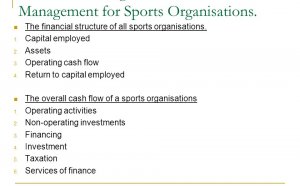
Financial Management and Accountability Act
CAC entities will need to begin reviewing their own governance to ensure they are ready for the 1 July 2014 commencement of the PGPA Act obligations.
A new regime establishing a uniform set of duties for Commonwealth entities, including CAC authorities, will be in force from 1 July 2014.
The Public Governance, Performance and Accountability Act 2013 (Cth) (PGPA Act) will replace the Financial Management and Accountability Act 1997 (Cth) (FMA Act) and Commonwealth Authorities and Companies Act 1997 (Cth) (CAC Act) with a principles-based regime.
For CAC Act authorities and their accountability authorities, this will mean new general duties and a need to review their own governance. CAC Act companies directors will continue to be bound by the directors' duties referenced in the Corporations Act 2001 (Cth) as well as other reporting duties in the PGPA.
Who are officials?
A range of general duties apply directly to all officials of a Commonwealth entity. This encompasses all individuals who are or who form part of the Commonwealth entity, including members of the accountable authority, officers and employees (but generally not consultants, independent contractors, or the Minister). The Act contemplates a carve-out of classes of individuals by rules, but these have not yet been made.
Until the rules are made, therefore, this is a wide class of persons, including people who are directors and senior officers of the entity, or even a mere employee of the present CAC Act entity.
Underpinning the PGPA Act is a policy that the resources held and managed by various types of Commonwealth entities are inherently public in nature and should be managed to the same standards of accountability, reporting and control.
In principle the additional duties largely duplicate existing duties in the APS Code of Conduct, which APS employees are already obliged to comply with. Thus the additional duties align previous CAC Act employee obligations with FMA Agency employee obligations.
General duties of accountable authorities
Under the PGPA Act, the "accountable authority" for a body corporate established by a Commonwealth law, is the governing body of the entity, unless otherwise prescribed by the rules. In essence the governing body is the board of directors of the entity. In the case of a Department of State or a Parliamentary Department, the accountable authority is the Secretary of the Department. Thus the overarching duties that apply to the leadership of a department and previous CAC Act agency have been aligned.
Accountable authorities continue to have similar obligations under the PGPA Act to those imposed on directors under the CAC Act in respect of planning and budgeting; reporting; accounts and records; financial records and auditing; banking and investment; and the establishment of an audit committee. However there is also new focus on performance. Consequently, accountable authorities will have a new duty to measure, assess and report on the Commonwealth entity's performance against achieving its purposes. This will add another dimension to the accountable authorities' existing focus and obligations.
The accountable authority takes on additional general duties which relate to its role in managing the entity and setting its strategic focus, including:
A duty to govern the entity in a way that promotes:
- the proper use and management of public resources for which the entity is responsible;
- the achievement of the purposes of the entity; and
- the financial sustainability of the entity.
A duty to establish and maintain systems relating to risk and control (including by implementing measures directed at ensuring officials of the entity comply with the finance law).
A duty to encourage co-operation with others to achieve common objectives, where practicable; and
A duty, when imposing requirements on others in relation to the use or management of public resources for which the accountable authority is responsible, to take into account the risks associated with that use or management; and the effects of imposing those requirements.
The duties of an official who is a member of the accountable authority (eg. a director/senior manager) would be an amalgamation of the officials' duties and the accountable authorities duties.
How can a CAC entity's accountable authority fulfil the PGPA Act duties?
Thus to meet the governance requirement for an accountable authority, officials who are members of the accountable authority should:
- maintain appropriate and effective decision-making and approvals processes in relation to the use of resources;
- have appropriate processes in place to ensure oversight over project and program line areas in their use of resources and to address inappropriate use of resources by officials;
- take medium and long-term (as well as short-term) considerations into account when undertaking planning and budgeting with a view to more efficient and effective financial management over the longer term;
- consider whether the Commonwealth entity's objectives overlap with other stakeholders (such as other Commonwealth entities, and other public and private bodies and organisations) and if so whether and how it would be beneficial and practical to work together with those other stakeholders to achieve the common objectives;
- establish and maintain policies and business processes for identifying, measuring, managing and reporting risks;
- assess the risks in relation to the public resources provided to others through procurement and grant processes (such as service providers and grant recipients) and impose obligations on recipients which are proportionate to the risks; and
- ensure that the responsibility for compliance and risk assessment and management is appropriately allocated, and any innovation and risk-taking does not undermine proper use and management of public resources.
Shinglers Take Over Durham Region Ontario
YOU MIGHT ALSO LIKE


Share this Post
Related posts
MSc Accounting and Financial Management
The Masters in Accounting and Financial Management provides advanced study of accounting and financial management. It enables…
Read MoreAccounting and Financial Management
Take classes on campus, online or through a combination of both Learn to evaluate, analyze and critique business strategies…
Read More










